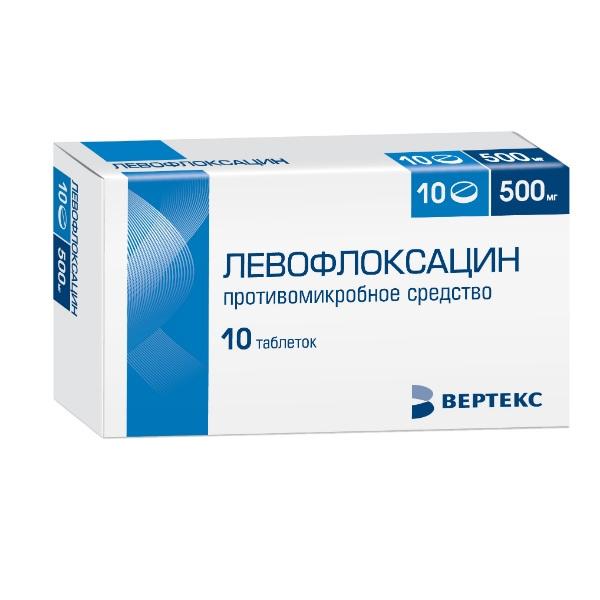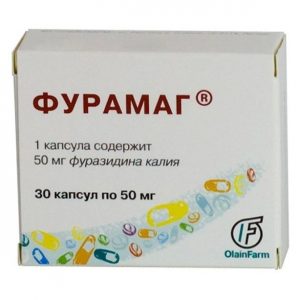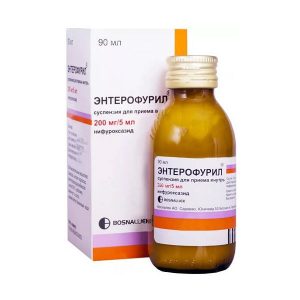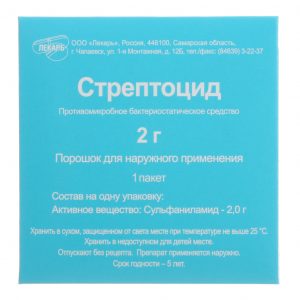Description
Release form
Film-coated tablets.
packaging 10 pcs
Indications
Infectious and inflammatory diseases caused by microorganisms sensitive to levofloxacin:
acute bacterial sinusitis
exacerbation of chronic bronchitis
community-acquired pneumonia
complicated infections of the kidneys and urinary tract infections urinary tract infections
Use during pregnancy and lactation
Use during pregnancy is possible only if the expected effect of therapy outweighs the potential risk to the fetus (adequate, strictly controlled studies of the safety of use in pregnant women have not been conducted).
Levofloxacin did not exert teratogenicity in rats when administered orally at a dose of 810 mg / kg / day (9.4 times greater than MPDD in terms of body surface area) or in / administration at a dose of 160 mg / kg / day (in 1, 9 times higher than the MHDF, calculated on the surface area of ² ¹ ² ¹the body).
Oral administration to pregnant rats at a dose of 810 mg / kg / day led to an increase in the rate of fetal death and a decrease in fetal body weight. In experiments on rabbits, there was no teratogenic effect when administered orally at a dose of 50 mg / kg / day (1.1 times higher than MPDC, calculated on the surface area of ² ¹ ² ¹the body) or iv in a dose of 25 mg / kg / day, which Corresponds to 0.5 MDRC, calculated on the surface area of ² ¹ ² ¹the body.
The FDA category of action on the fetus is C.
Levofloxacin was not detected in breast milk, but given the results of the studies of ofloxacin, it can be assumed that levofloxacin can pass into breast milk of lactating women and cause serious adverse reactions in breast-fed babies.
Breastfeeding women should stop either breastfeeding, or taking levofloxacin (given the importance of the drug to the mother).
Composition
1 tablet contains levofloxacin (levofloxacin hemihadrate) 500, 00 (512.46) mg.
Dosage and administration of
Levofloxacin is taken orally 1-2 times a day. The dose and duration of treatment are determined by the nature and severity of the infection, as well as the sensitivity of the alleged pathogen. Tablets should be taken without chewing and drinking plenty of fluids (from? To 1 cup). When choosing doses, tablets can be broken along the dividing groove into equal parts. The drug can be taken before meals or at any time between meals.
Treatment with Levofloxacin-Teva is recommended to continue for at least 48-72 hours after normalization of body temperature or after significant pathogen eradication.
Acute bacterial sinusitis: 1 tablet (500 mg) once a day for 10-14 days.
Acute bronchitis and exacerbation of chronic bronchitis:? -1 tablet (250-500 mg) 1 time per day for 7-10 days.
Community-acquired pneumonia: 1 tablet (500 mg) 1-2 times a day for 7-14 days.
Complicated infectious diseases of the kidneys and urinary tract, including pyelonephritis: by? tablet (250 mg) 1 time per day for 7-10 days.
Chronic bacterial prostatitis: 1 tablet (500 mg) once a day for 28 days.
Infections of the skin and soft tissues: 1 tablet (500 mg) 1-2 times a day for 7-14 days.
Patients with impaired hepatic function do not require dosage adjustment.
Patients with impaired renal function (CC less than 50 ml / min) require correction of the dosage regimen depending on the value of CC.
Side effects of the digestive system: nausea, vomiting, diarrhea, anorexia, abdominal pain, pseudomembranous enterocolitis, increased activity of hepatic transaminases, hyperbilirubinemia, hepatitis, dysbiosis.
From the cardiovascular system: decreased blood pressure, vascular collapse, tachycardia.
From the side of metabolism: hypoglycemia (increased appetite, sweating, trembling).
From the side of the central nervous system and peripheral nervous system: headache, dizziness, weakness, drowsiness, insomnia, paresthesia, anxiety, fear, hallucinations, confusion, depression, motor disorders, cramps.
On the part of the sensory organs: impaired vision, hearing, smell, taste and tactile sensitivity.
From the musculoskeletal system: arthralgia, myalgia, tendon rupture, muscle weakness, tendonitis.
From the urinary system: hypercreatininemia, interstitial nephritis.
From the hemopoietic system: eosinophilia, hemolytic anemia, leukopenia, neutropenia, agranulocytosis, thrombocytopenia, pancytopenia, hemorrhage.
Dermatological reactions: photosensitivity, itching, swelling of the skin and mucous membranes, malignant exudative erythema (Stevens-Johnson syndrome), toxic epidermal necrolysis (Lyell’s syndrome).
Allergic reactions: urticaria, bronchospasm, suffocation, anaphylactic shock, allergic pneumonitis, vasculitis.
Other: exacerbation of porphyria, rhabdomyolysis, persistent fever, development of superinfection.
Drug Interaction
The absorption of levofloxacin is significantly reduced when co-administered with sucralfate, magnesium or aluminum-containing antacids, as well as with iron salts (the interval between administration of levofloxacin and these drugs should not be less. No calcium carbonate interactions have been detected.
Quinolones can increase the ability of drugs (including theophylline) to lower the seizure threshold. Higher concentrations of levofloxacin (13%) were observed with fenbufen concomitant administration than with monotherapy.
The elimination of levofloxacin is slowed down by cimetidine (24%) and probenecid (34%).
Levofloxacin causes a slight increase in T1 / 2 cyclosporine.
Concurrent administration with glucocorticosteroids (ACS) increases the risk of tendon rupture.
Co-administration of levofloxacin with oral anticoagulants increases coagulation and / or bleeding time.
Levofloxacin when used concurrently with IA and III class antiarrhythmic drugs, tricyclic antidepressants, macrolides may cause QT prolongation.
Overdose
Symptoms: nausea, erosive lesions of the gastrointestinal mucosa, dizziness, clouding of consciousness and seizures in the type of epileptic seizures.
Treatment: conduct symptomatic therapy, ECG monitoring. There is no specific antidote. Hemodialysis is not effective.
Storage conditions
At a temperature not higher than 25 ° C in a dark place.
Keep out of the reach of children.
Shelf suitability
3 Year
Active ingredient
levofloxacin
tablet dosage form
Formulation




